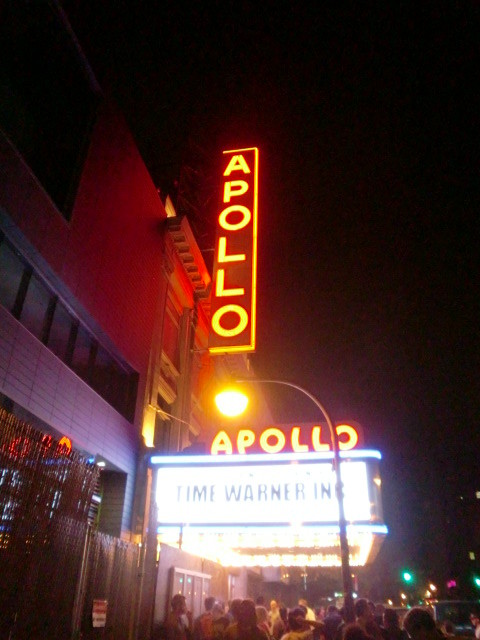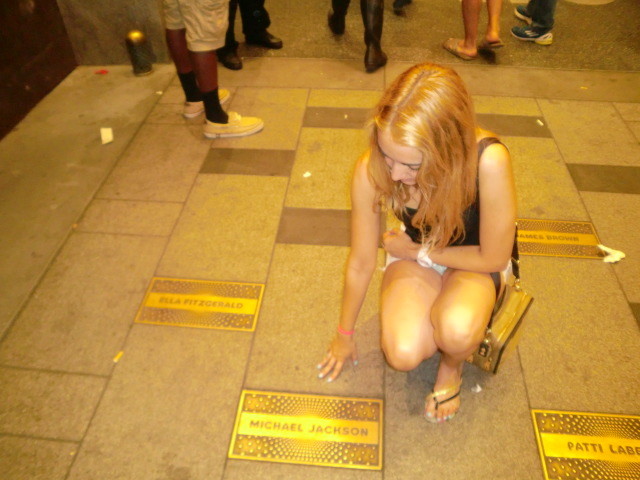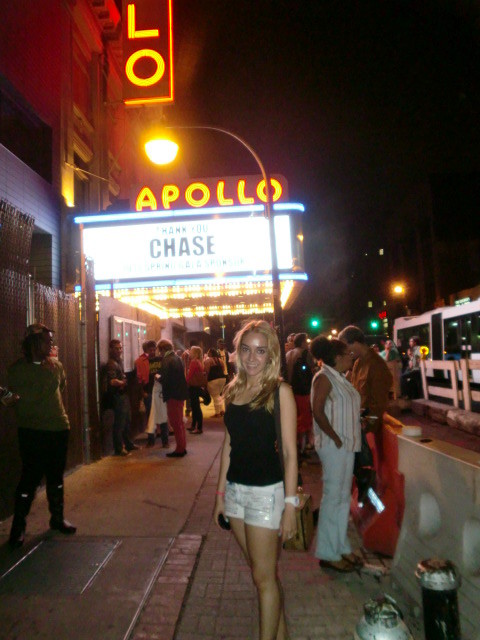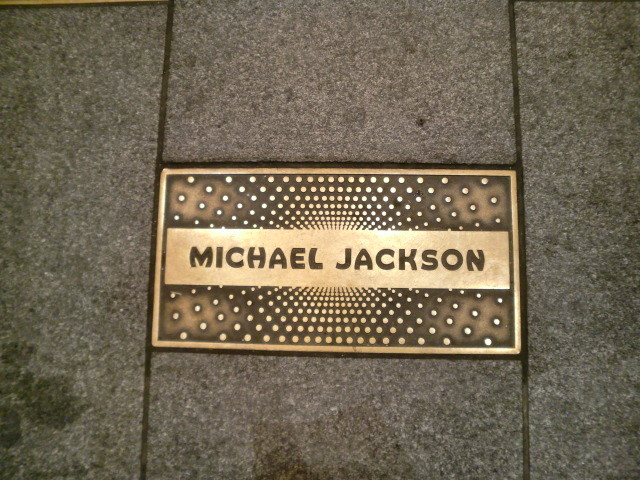Apollo Theatre
- Address: 253 W 125th St, New York, NY 10027, Estados Unidos
- Tags:
 What to see New York,
New York,
United States
What to see New York,
New York,
United States
- Telephone: +1 212-531-53
- Website: https://www.apollotheater.org
Apollo Theatre

The Apollo Hall was founded in the city of New York in the mid-1860s by ex-civil war general Eduardo Ferrero as a dance hall. On the expiration of its contract in 1872, the building was turned into a theatre but closed a few years before the turn of the century. The name Apollo Theatre has however prevailed. The building was designed by architect George M. Kaiser, who also designed the first Baptist Church in New York city on 79th Street.
Founded in a different place in 1913, the new Apollo Theatre was owned by several Jewish families until the outbreak of the Second World War. When the Apollo first opened, it was one of the city of New York's burlesque headquarters, opened and operated by one of the two most influential burlesque performers in the city - Jules Hurtig and Harry Seamon. Open only to white spectators, the theatre remained in operation until 1928, when Bill Minsky took it over and transformed it into the Apollo Theatre on 125th Street. Sidney S. Cohen, a powerful theatre owner, bought the Apollo in 1932 after the untimely death of Minsky. The Apollo Theatre finally opened its doors to African Americans in 1934, twenty years after the original opening of the building.

Ella Fitzgerald made her singing debut here at the age of seventeen on November 21st 1934. Opportunities were available to compete in one of their first famous 'Fan Nights'. Ella intended to dance onstage, but intimidated by the Edwards Sisters, a local dancing duo, she opted to sing from her seat, Connie Boswell style. She sang Hoagy Carmichael's 'Judy' and 'The Object of My Affection', a song recorded by the Boswell Sisters, and won first prize and $25. 00.
A special feature of the Apollo was 'the executioner', a man with a broomstick who swept artists off the stage if the audience booed and demanded their removal.
The theatre was located 253 East of 125th Street in Harlem, today one of the best-known black neighbourhood in New York and probably in the whole country. When the Apollo was re-opened in 1934, the area around 125th Street was a neighbourhood in transition. Over the preceding decades, the theatre had catered to its white audience with white burlesque shows. When Sydney S. Cohen and his partner, Morris Sussman, re-oped the Apollo on January 26th 1934, they published an advert in the New York Age, referring to the Apollo as 'the best theatre in Harlem'. Its first show was named 'Jazz a la carta'. All proceeds from the programme were donated to Fresh Air Children's Fund in Harlem. After Sydney S. Cohen's death, Morris Sussman and Frank Schiffman became business partners. Schiffman ran Harlem's Opera House, and they decided to form a partnership between the two theatres. Schiffman's motivation for taking on black talent and entertainment was not solely due to the neighbourhood's conversion into a predominantly black one over a 200-year-long process of gradual migration, but also since black artists were cheaper to pay, meaning Schiffman would be able to offer high quality shows at reasonable prices. For many years, Apollo was the only theatre in New York city which took on black performers.

The song 'I May Be Wrong (But I Think You're Wonderful)' by Harry Sullivan and Harry Ruskin, written in 1929, became the theatre's theme song.
The Apollo grew in importance during Harlem's Renaissance in the years prior to the Second World War. In 1934, its regular nocturnal amateur shows began. Known as the place 'where stars are born and legends are made', the Apollo became famous for launching the careers of artists such as Ella Fitzgerald, Billie Holiday, James Brown, Diana Ross & The Supremes, Gladys Knight & The Pips, The Jackson 5, Patti LaBelle, Marvin Gaye, Luther Vandross, Stevie Wonder, Aretha Franklin, Ben E. King, Mariah Carey, The Isley Brothers, Lauryn Hill and Sarah Vaughan. The Apollo also showed performances of old time vaudeville favourites such as Tim Moore, Stepin Fetchit, Godfrey Cambridge, Dewey Markham, Moms Mabley, Marshall 'Trash' Rogers, and Johnny Lee.
The club entered into a decadent phase in the 1960s and 70s, but was revived in 1985, and then acquired by the federal state of the historic city of New York in 1991. The Apollo Theatre is currently run by a non-profit organisation, the Apollo Theatre Foundation Inc., and receives an estimated 1. 3 million visitors every year. In 2005, Ben Harper and the Blind Boys of Alabama launched their album Live at the Apollo in honour of Harlem's music scene.
The Apollo Theatre is the home of Showtime at the Apollo, a national variety show for new musical talent.
On December 15th 2005, the Apollo Theatre began the first phase of its renovation project at an estimated cost of $65 million. The first phase included the restoration of the facade and LED canopy. The assistants and presenters at the launch event included President Bill Clinton, the Mayor of New York Michael Bloomberg and the CEO of Time Warner, Richard Parsons.
To this date, the renovation of the Apollo Theatre is the most expensive and extensive one to have been carried out in the history of theatre.

On December 28th 2006, the body of 'Soul Brother #1', who had died just a few days before, was exhibited at the Apollo Theatre as a monument to his life and career. The monument received high coverage by both TV reporters and newspapers. This homage brought the legendary theatre of Harlem back into the spotlight.
Buddy Holly was the first rock and roll artist to play at the Apollo in the 1950s. Daryl Hall and John Oates played at the grand re-opening in 1987, released on an album that same year. The only rock groups to have played at the Apollo are Korn in 1999 on their Questions album tour, The Strokes in 2001 and Spiritualized with their acoustic Mainlines concert in November 2007.
Photo gallery
Content available in other languages
- Español: Teatro Apollo
Rate and comment about this place!
Do you know Apollo Theatre? Share your opinion about this place.


















